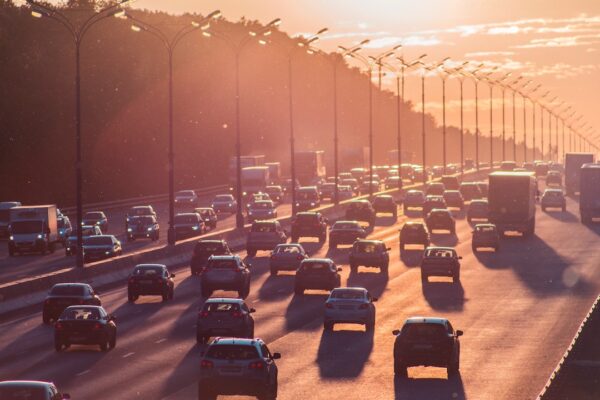ESR Submission to Parliament on Traffic Congestion Charging

Engineers for Social Responsibility Inc. (ESR) is an independent group of professional engineers who consider that being knowledgeable in the field of technology means that they also have a special obligation to the public at large in matters that relate to engineering, or that can be addressed using engineering approaches. This includes informing the engineering profession, general public and public policy makers about the impact of technology, including both positive and negative effects (see our website for more information: www.esr.org.nz).
Introduction
The Bill empowers the NZTA to partner with local government in developing what is referred to as time of use charging schemes. Earlier investigations have focused on Auckland which has the highest levels of congestion and is likely to see the first applications of the provisions in the Bill should they be enacted.
Most of New Zealand’s urban areas are characterised by low density development, which makes it difficult to serve effectively and efficiently by public transport. While the intensification of urban centres currently underway certainly helps reduce car-based travel demand growth, urban sprawl continues to extend into former rural areas. Much new development on the urban fringes is still car-dependent despite street layouts and designs which facilitate cycling and encourage walking.
The increasing cost of public transport subsidies is making it increasingly difficult to provide a public transport system that attracts sufficient patronage to reduce traffic congestion - or, more realistically, to significantly reduce the rate of increase in traffic congestion. Lowering public transport fares to encourage greater patronage typically increases the operating subsidies required, which, in turn, increases public funding requirements.
While essential if NZ is to meet its climate goals, electrifying the private vehicle fleet reduces vehicle operating costs and can encourage more private vehicle travel and longer commute trips.
Increasing the capacity of a road network temporarily reduces traffic congestion, often at considerable expense. However, the additional capacity is soon taken up by increased car traffic. It is not a realistic long-term solution.
Time-of-Use Charging
ESR commends the Government for introducing the Bill to implement a charge for road users wishing to use a congested part of the road network as it makes a lot of economic and strategic sense. Road users can pay the charge, travel at a different time, use a different route or use public transport. Provided the charge is sufficient to encourage a change in travel behaviour, it will reduce the number of vehicles using the road or roads subject to the charge, and by doing so reduce travel times. As identified in the Cabinet Paper recommending this law change, it will also have positive effects on housing and other non-transport benefits.
In the case of Auckland, the planned completion of the Central Rail Link (and associated track improvements outside the Central Area) in 2026 will be a major milestone which can be expected to significantly increase the use of public transport to, through and within the Central Area. The introduction of congestion pricing in Auckland should form part of the package of measures to support and make the best use of this very large investment.
By reducing peak period traffic congestion, congestion pricing can be expected to delay or potentially avoid the need for major roading investment. Freight and service traffic could benefit substantially from the reduction in travel times and in the daily variations in traffic delays that accompany high levels in congestion. Air pollution levels in congested corridors would reduce.
GNSS Road Pricing
GNSS road pricing or tolling is the charging of road users using Global Navigation Satellite System sensors inside road vehicles. GNSS-based road tolling is used to charge heavy goods vehicles for road usage on the entire road network in several European countries. As it is very likely that such a system will be introduced throughout NZ in the future, it is appropriate that congestion or road use pricing also be GNSS-based if practical.
Singapore’s Electronic Road Pricing system is to switch to a GNSS-based system after the installation in each vehicle of the on-board units for communication with a satellite is completed in 2025. The OBU includes an antenna attached to the windscreen and a small screen.
Using GNSS congestion pricing vehicles can be charged for the distance travelled with a cordon as opposed to paying a flat fee. GNSS road pricing on the other hand enables road pricing policies based on time, distance and place.
Equity Issues
It is important that equity considerations be carefully considered in the design and implementation of any demand managed time of use charging system.
Time of use charging should be designed to be base revenue neutral rather than as a new funding tool to increase transport funding.
ESR supports the Bill’s requirement to clearly set out in advance how the net income from congestion charging is to be used. Uses should include targeted assistance for those on lower incomes who cannot realistically avoid paying the additional cost.
If not managed appropriately, time of use charging can exacerbate inequity by favouring those more transport fortunate at the expense of those that do not have the same access or mobility options and yet are even more dependent on mobility for basic needs. They may not have a realistic public transport option and may be unable to avoid travel on a route or routes during time periods when congestion pricing is in operation.
Mobility disadvantaged users need to have specific policy subsidies designed to reduce inequity yet still enable access.
Thank you for your consideration of this submission.
Ngā mihi,
Brendan Donnell
Secretary: secretary@esr.org.nz
Ross Rutherford
Editor: editor@esr.org.nz
Engineers for Social Responsibility Incorporated. www.esr.org.nz
